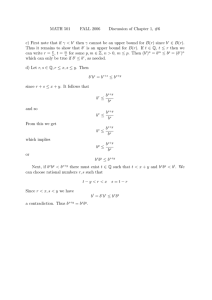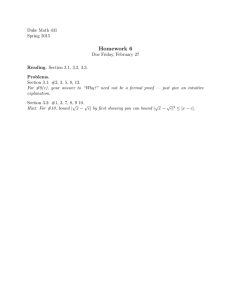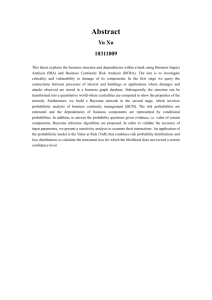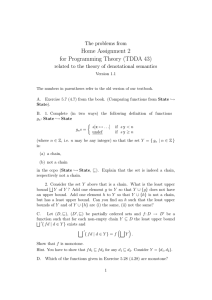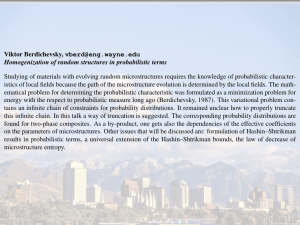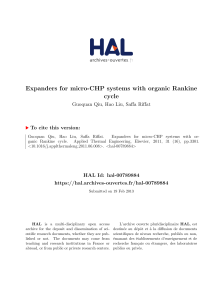Abstract Process flexibility has been widely applied in many industries as... improve responsiveness to demand uncertainty. An important flexibility concept is...
advertisement
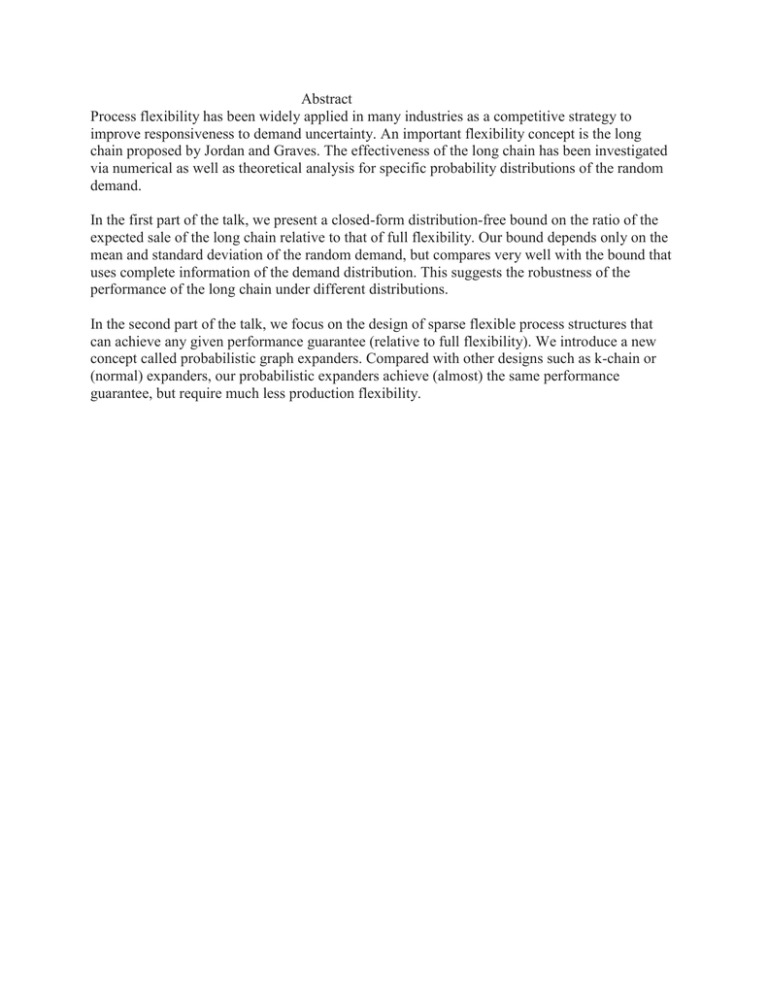
Abstract Process flexibility has been widely applied in many industries as a competitive strategy to improve responsiveness to demand uncertainty. An important flexibility concept is the long chain proposed by Jordan and Graves. The effectiveness of the long chain has been investigated via numerical as well as theoretical analysis for specific probability distributions of the random demand. In the first part of the talk, we present a closed-form distribution-free bound on the ratio of the expected sale of the long chain relative to that of full flexibility. Our bound depends only on the mean and standard deviation of the random demand, but compares very well with the bound that uses complete information of the demand distribution. This suggests the robustness of the performance of the long chain under different distributions. In the second part of the talk, we focus on the design of sparse flexible process structures that can achieve any given performance guarantee (relative to full flexibility). We introduce a new concept called probabilistic graph expanders. Compared with other designs such as k-chain or (normal) expanders, our probabilistic expanders achieve (almost) the same performance guarantee, but require much less production flexibility.
